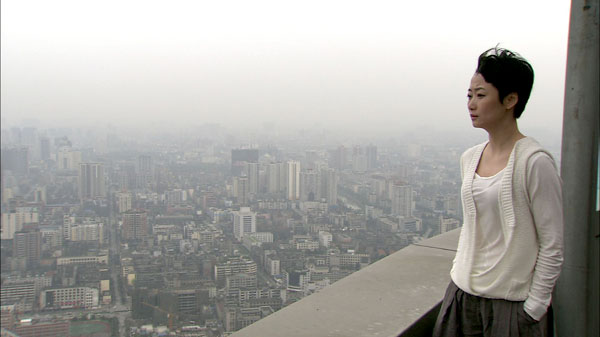|
Reviews of Recent Independent, Foreign, & Documentary Films in Theaters and DVD/Home Video

24 CITY Few directors tackle the depersonalizing effects of modernized China as pointedly as Jia Zhang-ke. His feature-length debut, The Pickpocket (1997), featured a youth who falls for a hooker and is unable to escape from the harsh realities of street life. His highly lauded The World (2004) made the ironies of globalization absurdly literal through its setting, an EPCOT-like theme park that features replicas of famous world structures and touts that you can “see the world without leaving Beijing.” Now with the half-documentary, half-fictionalized 24 City, Zhang-ke takes on an abandoned munitions factory in the city of Chengdu. In the late ’50s, the factory was used to make aviation engines, but it has since been abandoned and sold to real-estate developers who plan to turn it into a luxury apartment complex called 24 City. Zhang-ke interviews five of the real-life factory’s workers, whose lives have been neglected by China's developing industrial capitalism. He also includes four staged monologues, one by noted actress Joan Chen (who you might remember as Josie from Twin Peaks.) Zhang-ke’s method places his subjects in locations normally occupied by large crowds. One subject is interviewed on the assembly line, another on a moving bus that is otherwise empty, and the audience is forced to confront the bitter truths of years of repetitive, monotonous work that offers no promise of a better life. Zhang-ke’s use of elliptical fade-outs and prolonged pauses adds a further layer of forced introspection. Coupled with removed, panoramic shots of crowds scurrying through the front gates of the complex, Zhang-ke presents a China so consumed with the progress of urbanization that it fails to take care of its workers. Although the method is admirable, it also has its pratfalls. “Present-day films rely more and more on action and movement,” Zhang-ke says. “In this film, I wanted to return to spoken language and movement… I want to allow the narration to provide access to the speakers’ innermost feelings and experiences.” This is a double-edged sword. While it lets the subjects speak for themselves, it also results in the filmmaker relinquishing some control. Rather than judiciously cut together excerpts from the interviews, Zhang-ke prefers unbroken takes, often leading to unfocused, digressive testimonies from his subjects. The extended interviews are comprehensive, but also tedious.
In
the end, the most enjoyable aspect of the film arises not out of content
but out of form. Cinematographers Yu Wang and Yu Likwai (a longtime
Zhang-ke collaborator) capture Chengdu in startlingly pristine
high-definition images. Zhang-ke cleverly uses the formalities we would
normally associate with cinematic fiction—tracking shots and
two-shots—and applies them to digital video, which lends immediacy to
the film's settings, characters, and themes. This happened to a much
greater extent in Inland Empire (that infamous three-hour
phantasmagoric mindfuck), in which David Lynch used digital video to
blur the lines between fiction and reality much more abstractly.
Rich Zwelling
|

